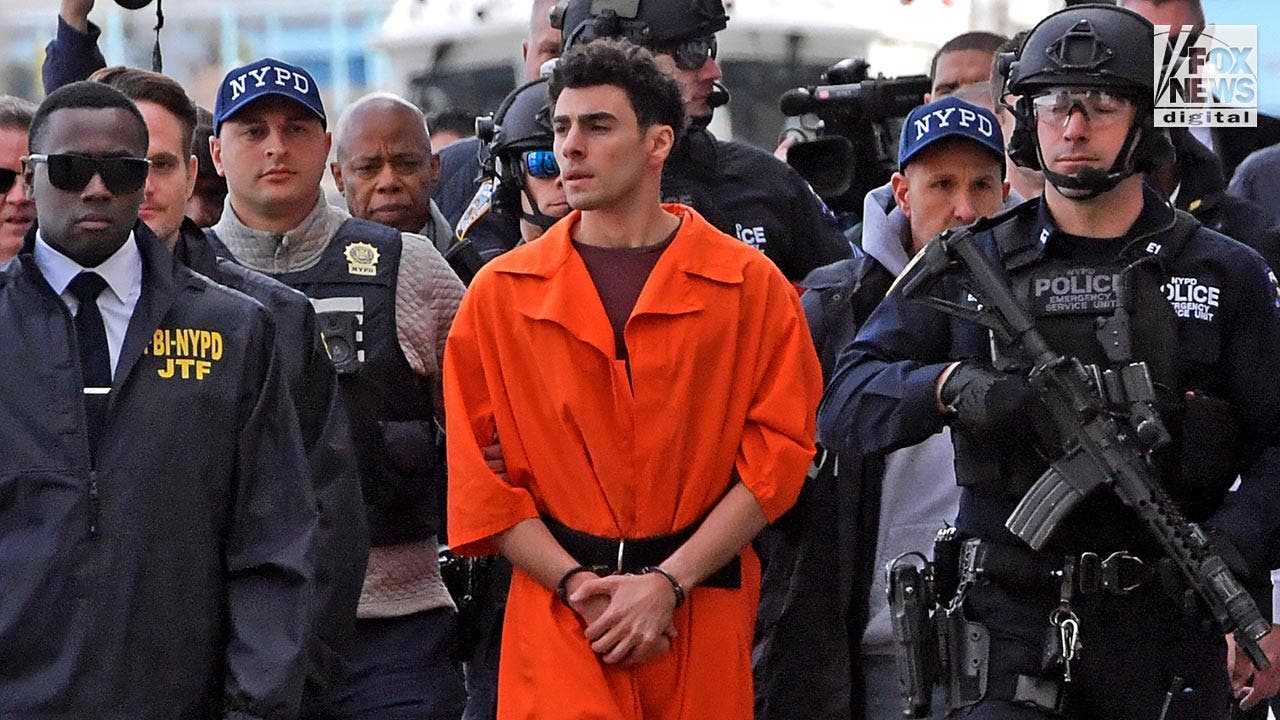United States
Luigi Mangione supporters whine about suspected CEO assassin’s portrayal in ‘corporate backed narrative’

The assassination of UnitedHealthcare CEO Brian Thompson on December 4, 2024, sent shockwaves across the nation. The brutal murder, captured on surveillance video, showed a masked assailant approaching Thompson from behind and opening fire in cold blood. A female bystander’s terrified reaction as the killer casually walked away, later meandering through Central Park, added to the chilling nature of the crime. The suspect, identified as Luigi Mangione, was arrested five days later at a McDonald’s in Altoona, Pennsylvania, after patrons recognized him from a wanted poster. Mangione, now facing severe charges, including the possibility of the death penalty, has become a polarizing figure, with a surprising cult following that views him as a symbolic figure in the fight against corporate power.
Mangione’s arrest and the subsequent details of the case have sparked intense debate. Police allege that he meticulously planned the murder, stalking Thompson, arriving in New York City a week in advance, and scouting the area. They claim to have found his DNA and fingerprints near the crime scene and recovered a gun linked to the murder in his backpack. Additionally, surveillance footage showed Mangione pulling down his coronavirus mask and smiling while flirting with a clerk at the Manhattan hostel where he stayed. This image went viral, paradoxically generating a wave of support for the accused killer. Online forums, such as the Reddit subreddit r/FreeLuigi, have become hubs for his defenders, who describe him as a “humanitarian” and a “positive inspiration.” Supporters argue that his prosecution is part of a “corporate-backed narrative” and that the case against him is “unprecedented.”
Despite the overwhelming evidence presented by authorities, Mangione’s supporters remain steadfast in their belief that the charges are unjust. They point to the alleged theatrics of his perp walk, where he was flown into New York City via helicopter and met by the mayor, the NYPD commissioner, and dozens of officers in tactical gear. Legal experts, including retired NYPD sergeant Joseph Giacalone, have criticized the display as excessive and akin to something out of a dramatic movie. While the optics may not directly impact the case, they have fueled conspiracy theories among Mangione’s followers, who view the spectacle as evidence of a broader corporate and governmental overreach.
Mangione’s background adds another layer of intrigue to the case. Hailing from a wealthy family, he attended a private high school and graduated from the Ivy League University of Pennsylvania. His privileged upbringing contrasts sharply with the anti-capitalist image his supporters have cultivated for him. This dichotomy has not deterred his followers, who have raised nearly $300,000 for his legal defense. Mangione’s top-tier private attorney and the resources at his disposal further complicate the narrative, as critics argue that his wealth and influence are allowing him to receive preferential treatment.
The assassination itself appears to carry a symbolic message. Shell casings found at the scene bore sinister inscriptions: “depose,” “deny,” and “defend.” These words mirror the title of a book critical of the insurance industry, Delay, Deny, Defend: Why Insurance Companies Don’t Pay Claims and What You Can Do About It, in which Thompson was a key figure. The Justice Department alleges that Mangione’s motive was to ignite a public discussion about the healthcare industry, framing the murder as a radical act of protest. This narrative has resonated with many who view Thompson as a representative of a corrupt and exploitative corporate system.
The case has also raised questions about the role of mainstream media in shaping public perception. Supporters of Mangione accuse major outlets of buying into a “corporate-backed narrative” and ignoring the broader systemic issues that they believe motivated the crime. A CNN White House correspondent faced backlash for promoting Mangione’s defense fund, leading to the deletion of the post. Meanwhile, an ID documentary titled Who is Luigi Mangione? was criticized on the r/FreeLuigi subreddit for its portrayal of the accused assassin. These criticisms highlight the tension between mainstream media’s role in reporting facts and the public’s growing distrust of institutions.
As the case unfolds, Mangione’s prosecution has become a lightning rod for debates about corporate power, government overreach, and the ethics of radical activism. While the legal system will ultimately decide his fate, the cultural and ideological divides that his case has exposed are unlikely to subside anytime soon. Mangione’s supporters see him as a martyr for a cause, while others view him as a cold-blooded killer who took the life of a husband, father, and CEO. The trial promises to be as much about the man as it is about the broader societal issues his actions have come to represent.
-
Tech1 day ago
Canon’s New Camera Is in a Category Once Thought Practically Dead
-
Tech7 days ago
‘The White Lotus’ Season 3: Release Schedule and How to Watch
-
Entertainment6 days ago
Khloe Kardashian Says Mom Kris Jenner ‘Gets Mad at Me’ for Wearing ‘Baggy Sweats’ Out of the House
-
Money6 days ago
Cal Newport’s Productivity Hack That Can Also Help You Escape Financial Burnout
-
Tech7 days ago
Best Internet Providers in Cincinnati, Ohio
-
Sports3 days ago
Chargers to play 2025 regular season opener in Brazil
-
Tech5 days ago
Best AirPods Max Accessories for 2025
-
World7 days ago
How to Watch USA vs. Cuba: Live Stream 2025 Concacaf U-17 Men’s Qualifiers, TV Channel